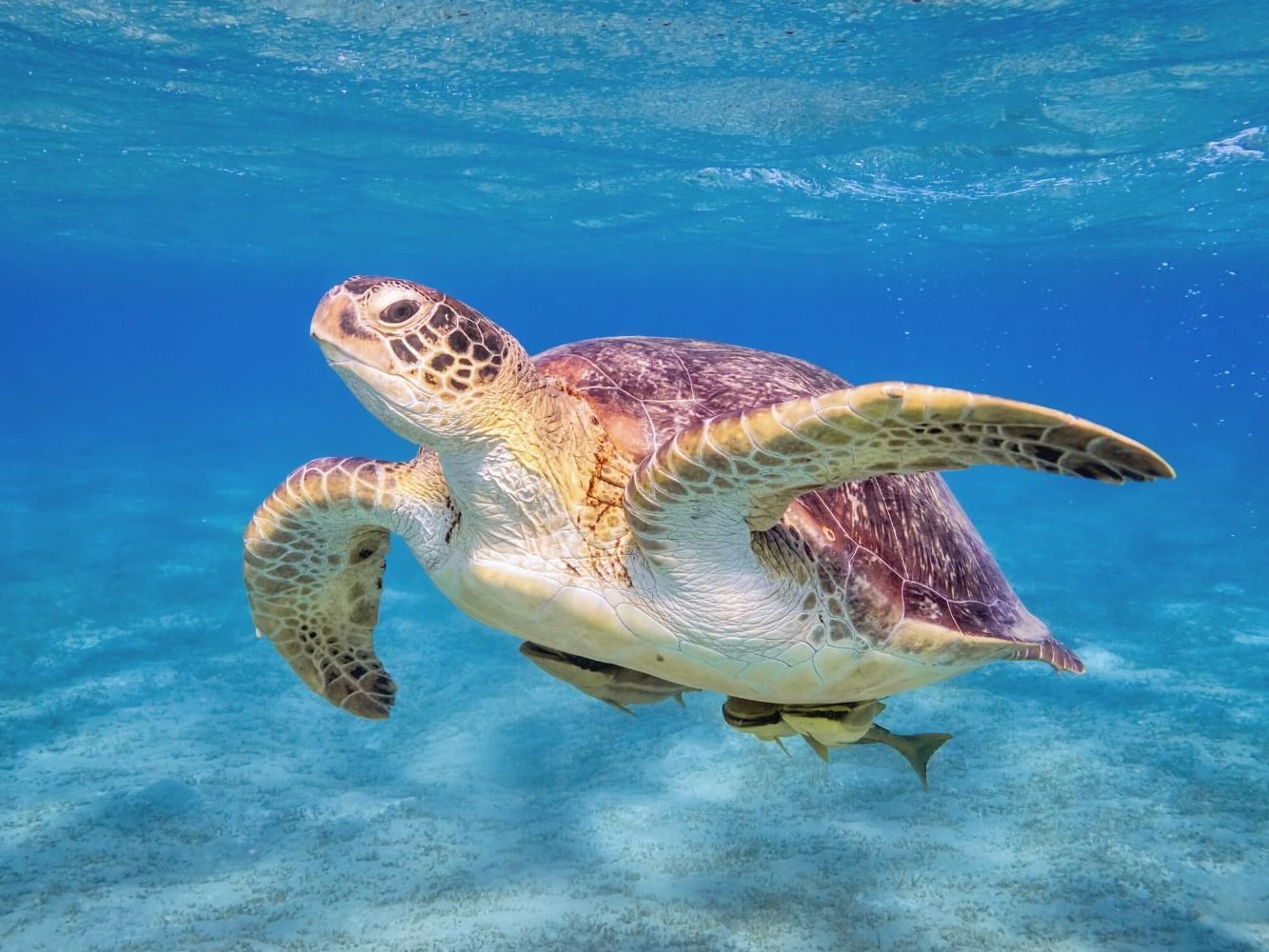Sustainable Paradise: Embracing Eco-Friendly Practices in Waikiki
Caring for the earth is an attitude that's deeply rooted in the profound reverence and strong sense of responsibility of the Hawaiian people. Aloha ʻāina, meaning 'love for the land,' is a phrase in this paradise destination. While each word has varying meanings and layers, it embraces an attitude of loving and being one with nature. Properly managing sacred natural resources and their creatures comes from a belief that both offer spiritual energy and power.
Waikiki Conservation Efforts to Care for The ʻĀina
As part of their sacred responsibility, Hawaii is a prime example for those interested in green hospitality. Whether you're a conscious wanderer seeking eco-friendly travel destinations or an eco-enthusiast, witness some ways that Waikiki prioritizes ancient respect for the land.
Hands-on Beach Cleanups
Many organizations and individuals in Hawaii work towards keeping their shores clean with spontaneous or planned hands-on beach cleanups. These events are fun and inspirational and show great care for the ocean and land.
Reforestation of Native and Endemic Forests
The Hawai'i Convention Center has pledged to plant 1 million Legacy Trees throughout the state in partnership with the Hawaiian Legacy Reforestation Initiative, a nonprofit organization. They aim to offset the carbon footprint by planting over 500,000 native and endemic trees on O‘ahu and the islands of Hawaii.
Encouragement of Sustainable Purchases
Eat local, buy local! By sourcing food products and goods directly from Hawaii, many stores, restaurants, and hotels reduce the requirement for shipping and packaging.
Protection of the Reefs
Did you know that Hawaii is home to 80% of coral reefs in the US? If snorkeling is on your bucket list for your trip to Waikiki, you'll soon witness the beautiful habitats in these reefs. This natural ocean paradise is not without effort and extreme care. To decrease the risk of the escalating extinction facing reefs, Hawaii has made history by becoming the first state in the US to ban sunscreens that contain harmful chemicals such as oxybenzone and octinoxate, which threaten coral reefs.
Hawaiian Clean Energy Initiatives
The Hawai‘i Clean Energy Initiative (HCEI) is a collaborative effort launched in 2008 between the State of Hawai‘i and the US Department of Energy to reduce the state's heavy reliance on imported fossil fuels. It aims to shift towards local, clean, renewable energy sources and enhance energy efficiency. They aim to achieve 100% clean energy by 2045.
Land & Ocean Protection Laws
The Hawaii Revised Statutes Section 171-58.5 prohibits the removal of sand, coral, soil, rocks, or other marine deposits from the Hawaiian shoreline and land. This law aims to safeguard Hawaii's natural resources and uphold the ecological health of its shorelines. By enforcing this law, beach erosion is prevented, natural habitats are protected, cultural vegetation is encouraged, and delicate ecosystems can keep the islands of Hawaii beautiful for future generations.
Tips for Embracing Alohaʻāina in Waikiki Through Eco-friendly Travel!
- Gather litter on the beach and recycle.
- Take only photos! Removing beach sand, volcanic rock, or any part of nature from Hawaiian islands is illegal.
- Stay on the path when visiting gardens and parks! Avoid disturbing plants, ocean, and animals.
- Support businesses and tours that aim to use local, sustainable products and means.
- Use reef-safe sunscreen and avoid contact with the reefs when snorkeling.
- Avoid single-use plastics and opt for reusable, eco-friendly travel items.
- Use eco-conscious transport options like walking, cycling, and public transportation.
Plan Your Waikiki Trip Today and Leave Renewed
Hawaii is susceptible to both environmental and economic disturbances. When you visit, it becomes your responsibility to prioritize sustainability in your choices, aligning with the concept of "kuleana" or your duty to the islands.
Planning a trip to Waikiki can be an excellent way to learn about a new culture and recalibrate your respect and appreciation for land, ocean, creatures, and yourself. After all, sustainable practices are a way of life in the Hawaiian culture. After your visit, you may be inspired to cherish everything the earth offers, heading home with an enthusiasm for Aloha ʻāina practices.

